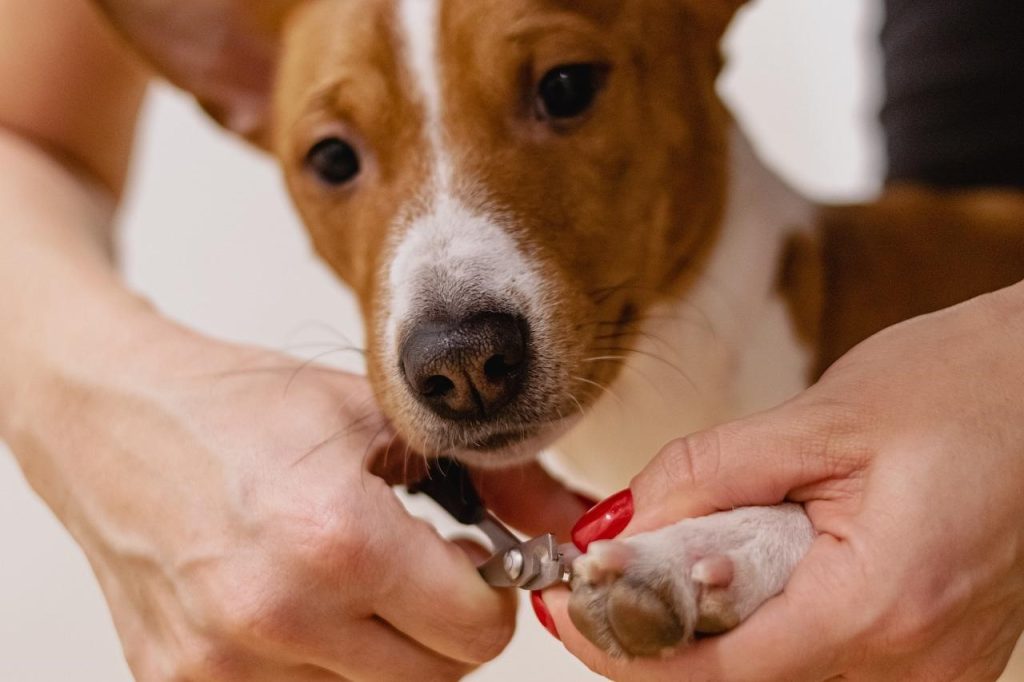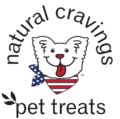Dogs, our loyal companions, communicate in various ways, and one behavior that often leaves owners puzzled is paw chewing. But this seemingly harmless habit can be a secret clue to underlying issues ranging from allergies and pain to boredom.
So let’s take a closer look at why dogs might chew on their paws, and how to solve this problem.

Common Causes Of Paw Chewing
While licking can seem normal, excessive licking and chewing can be a sign that something is wrong. If you notice sores or bald patches on your dog’s paws here are some common causes that could be troubling your furry friend.
Allergies
Dogs, like humans, can suffer from allergies that manifest in various forms. Paw chewing is a common sign of allergic reactions. Both food sensitivities or environmental factors can cause itchy skin. To narrow down the type of allergy to either a food or environmental allergy you can get a test online. Or you can talk to your vet. Another option is to start a type of food that has limited ingredients. That can help you narrow things down.
Pain Or Joint Swelling
Licking is a natural instinct for dogs to alleviate discomfort. Your dog may be experiencing pain or joint swelling. Older dogs, in particular, may face challenges with mobility, and addressing their joint health becomes crucial. You can help support your dog’s joints by giving them chews like collagen chews or those rich in amino acids, such as bully sticks. However, they won’t treat underlying causes, so check with your vet to make sure it’s nothing serious.
Boredom And Mental Health
Dogs are smart, social animals that thrive on mental stimulation and companionship. When left alone for extended periods or without engaging in activities, dogs may resort to self-soothing behaviors like chewing their paws. While that’s better than eating your shoes, it’s still not good for them. This behavior can indicate boredom but can also lead to destructive tendencies and potential infections from sores caused by excessive chewing.
How To Stop A Dog From Chewing On Their Paws
Stopping a dog from chewing on their paws involves a combination of identifying and addressing the underlying cause, providing appropriate alternatives, and ensuring overall well-being. It can be quite the juggling act.
Identify The Cause
Before implementing any changes, you need to identify why your dog is chewing their paws. Determine if it’s due to allergies, pain, boredom, or another underlying issue. Consult with your veterinarian to rule out any medical conditions. Because there’s no use in swapping around food when it’s a pollen allergy, or when the kids have extra practice and are away more.
Once you know what could be causing the excessive licking and chewing, you can then take action to stop your dog from this behavior.
Maintain Proper Hygiene
If your dog seems to only chew their paws seasonally, it might be because of an outdoor allergy. Ensure that your dog’s paws are clean and free from irritants. This means you might have to pick up some pet wipes and leave them by the backdoor. Regularly check for signs of redness, swelling, or sores. And if your dog has long hair between their toes, an extra trim might help reduce pollen buildup.

Provide Mental and Physical Stimulation
Bored dogs can easily become destructive. To themselves and things in your home. Regular exercise and interactive play can help alleviate boredom. Simple changes in their daily routine can help to reduce self-soothing behaviors like paw chewing. Offering your pup a long-lasting durable bully stick or a nutritious treat when you get home can help them with that oral fixation. Another great option is to take a walk.
Offer Healthy Natural Chews
Having safe chews on hand can help to give your dog a nutritious way to beat the boredom. Natural chews, such as bully sticks, tendons, or yak cheese chews, not only satisfy your dog’s chewing instincts but also contribute to their dental health. Natural Cravings USA offers a variety of safe and nutritious chews made in the USA. Shop now!
Address Food Allergies
If food allergies are the culprit, work with your vet to identify specifics within your dog’s diet. There are also at-home kits that can help you narrow down the culprit for less than the price of a vet visit. Working through an elimination diet can also work. Furthermore incorporating omega-rich supplements or chews may help alleviate allergic reactions.
Use Anti-Chew Sprays
Sometimes this behavior is linked to mental health, but it can still cause bacterial infections and other problems. If you can’t figure out what is causing this behavior anti-chew sprays can be applied to your dog’s paws to deter them from licking and chewing. These sprays usually have a bitter taste, discouraging the behavior. Ensure the product is safe for pets and consult your vet if needed. However, not all dogs hate the taste.
Consider A Cone Or Booties
To physically prevent your dog from accessing their paws, consider using a cone or protective booties. This can be especially helpful in the short term while addressing the root cause of the behavior.
Conclusion
Understanding the reasons behind your dog’s paw chewing is the first step towards ensuring their well-being. Whether it’s allergies, pain, or boredom, addressing the underlying cause is essential for preventing this behavior. By consulting with your veterinarian and incorporating healthy natural chews into your dog’s routine, you can foster their mental and physical health, ensuring a happy and content furry companion.
